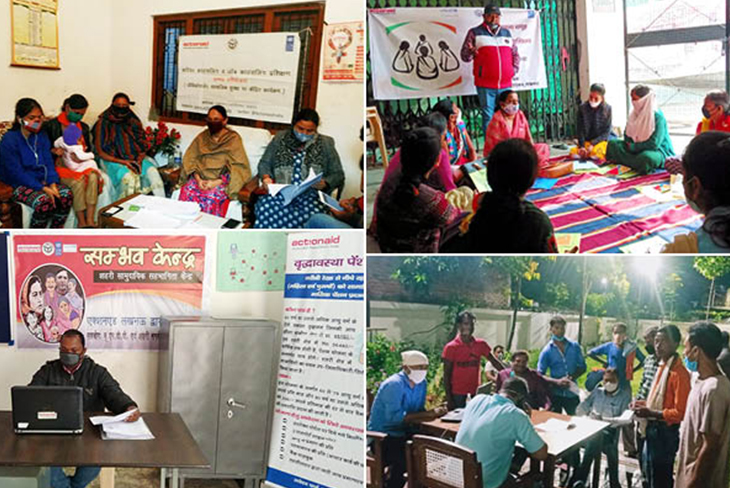Together with United Nations Development Programme (UNDP), UNICEF and Directorate of Urban Local Bodies, Government of Uttar Pradesh, we are implementing ‘Sambhav’, an initiative across 30 slums of Lucknow to support communities most severely affected in the wake of the COVID-19 pandemic. Sambhav was rolled out in August 2020, as an emergency response programme when the pandemic was at its peak.
To help communities cope with the resultant socio-economic distress, we designed a three-dimensional approach under this programme, keeping in view the most immediate concerns and needs on the ground. This included enabling access of the most vulnerable families to social protection schemes; strengthening livelihoods through formation and empowerment of women’s collectives; and providing career and job-related counselling to youth. Under this intervention, we have set up four Shahri Samudayik Sahbhagita Kendras (Sambhav Kendras) very close to our intervention localities. Run with the support of the Nagar Nigam, these kendras function as support centres for the urban poor and provide a place for orientation programmes, meetings, and the facilitation of access to government schemes.
Our efforts on the ground are being supported by 51 community-based volunteers who, after being successfully trained, are now actively advancing the agenda of this programme. In collaboration with the concerned government departments, we organized registration and facilitation camps to enable communities’ access to government schemes. As a result, we could help more than 1,000 families receive benefits of schemes; these include the Public Distribution System, housing schemes and registration with the Building and Other Construction Workers’ Welfare Board.
Together with our volunteers and other stakeholders, we have formed/strengthened 67 women’s Self-Help Groups (SHGs). We have, so far, been able to train 63 of them (comprising nearly 630 women) on institution-building, enterprise management, financial literacy and digital literacy. Our efforts are now directed towards getting their bank accounts opened and registering them with the National Urban Livelihoods Mission. Our teams are also in continuous touch with local traders’ associations, industries, related government agencies and civil society organizations, and mapping informal workers’ skills against available work opportunities to rebuild their livelihoods. In addition, this programme has been able to counsel over 3,500 youth on career and job-related matters to promote their economic security.

